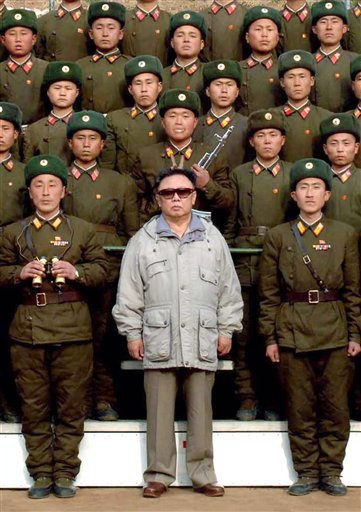
"In the U.S., there is talk that it would be better for America to form diplomatic ties with North Korea, even if it doesn't abandon its nuclear weapons. There is no guarantee that this view won't become the mainstream approach."
New York Times reports that the Bush Administration allowed North Korea to secretly export arms to Ethiopia, three months after Washington succeeded in getting the U.N. to impose strict sanctions on the country as a response to its nuclear test. Judging from the American government's response, the deal seems to have been concluded.

Last October, the U.S. initiated and led the formulation and implementation of U.N. Resolution 1718. Article 8 of that resolution prohibits all U.N. member states from purchasing arms or weapons components from North Korea. Member states were not merely advised to abide by that rule, but were obligated to do so without exception. At the time, the U.S. had called it the strongest resolution ever drawn up against North Korea, citing Chapter 7 of the U.N. Charter that stipulates the legal use of force.
Just as that resolution passed, Ethiopia informed the United States of a purchase contract for North Korean Weapons, including Soviet T-55 tank parts. The U.S. decided to let this pass. The North Korean arms shipment entered Ethiopia in January without difficulty. This was a clear violation of the U.N. resolution. The U.S. government reportedly tolerated the arms deal because Ethiopia was fighting armed Muslim forces in nearby Somalia. It's like the logic that the enemy of your enemy is your friend.
After the passage of the U.N. resolution, the U.S. had called for a halt in monies going into North Korea through the Kaesong Industrial Complex and tours to the North's scenic Mount Kumgang resort. The U.S. said North Korea might use the money to produce weapons of mass destruction. But at the same time, Washington was allowing Ethiopia to pay North Korea for weapons. In September 2005, the U.S. designated Macau's Banco Delta Asia as a financial institution suspected of laundering North Korea's ill-gotten gains, and now it is racking its brains trying to find a way to return the frozen funds to North Korea.
A perennial characteristic of international affairs is that what's prohibited one day may be permitted the next, depending on national interests. America's position now is that North Korea must first scrap its nuclear program before Washington will renew formal diplomatic ties. No one opposes this approach. But in some parts of the United States, there is talk that it would be better for America to form diplomatic ties with North Korea, even if it doesn't abandon its nuclear weapons. There is no guarantee that this view won't become the mainstream approach of the American government. In fact, it would be entirely in character if it did so.
The future security of South Korea can only be protected by the determination of South Koreans, and nobody else. We are almost to the point of realizing this fact.























No comments:
Post a Comment